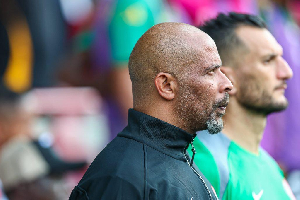Last week, a Bloomberg article screamed with the headline “Nigeria Exploring Debt Restructuring, Finance Minister Says” quoting a comment from Zainab Ahmed.
As expected, the comments riled the debt market for Nigeria’s Eurobond, spiking bond yields in the aftermath. Investors had taken her comment as confirmation that Nigeria plans to indeed restructure its foreign debts.
The price of Nigerian dollar bonds plummeted. Nigeria Bonds maturing in 2047 was quoted just below 56 cents on the dollar on Thursday, down from 58.368 cents on Tuesday.
The government through the Debt Management Office soon issued a press release denying any claims that the country was seeking to restructure its debts. According to the DMO, the statement was taken out of context as there were no plans to restructure Nigeria’s debt.
What is debt restructuring?
Debt restructuring (for a country is a process that involves renegotiating the terms of a country’s debt to avoid a total default in repayment of its principal and or interest.
It is a procedure that countries use to avoid defaulting on current debts and could be in the form of negotiating reduced interest rates or reducing principal (taking a haircut) to accommodate the revenues of the debtor country.
The decision to restructure a country’s debt often starts when the country can no longer meet the obligation of its bondholders or multilateral lenders. This is mostly due to huge revenue shortfalls and rising public expenditure making it difficult for the country to pay its debts.
When a country is in financial distress, debt restructuring can be a less expensive alternative to a total default thus it ultimately benefits the debt country and its creditors.
Nigeria’s neighbour, Ghana, is currently undertaking debt restructuring in order to qualify for International Monetary Fund aid. Notably, lending to governments with unsustainable debts is prohibited by the International Monetary Fund unless those nations make efforts to restore their financial viability, which may involve debt restructuring.
According to the IMF, coronavirus has increased debt hardship, notably in low-income and emerging market economies. Argentina, Ecuador, Lebanon, and Zambia are among the countries that have recently sought debt restructuring.
Pros of Debt Restructuring
A country that is thinking about restructuring its debt probably has serious financial issues that are tough to overcome. Therefore, restructuring debts is undoubtedly preferable and more efficient in the long run than the inability to make interest payments.
The benefits of debt restructuring include deferment, reduction in installments, or reduction in the interest rate.
Debt restructuring provides a debtor nation with immediate cash for investments in future economic plans.
Furthermore, creditors receive a better payout than they would if the country were to stop paying its interest.
Cons of Debt Restructuring
As indicated above, debt restructuring suggests a country is no longer able to meet its debt obligations except the terms of the debts are reviewed, which often leads to a restructuring. The implication of this is dire for most countries who seek this path.
The country’s credit rating is typically classified as junk meaning investors’ risk of lending the country any money is high risk.
This means the country’s interest rates for borrowing will be significantly higher than its peers or than it would have had it not restructured its debts.
If a country has a high-interest rate for its borrowing, it is likely that its private sector borrow at an expensive rate should it approach the external debt market.
A restructuring also means pension funds and other structured funds that invest on behalf of ordinary Nigeria will lose money impact negatively on the returns of citizens of the country
There is more…
A debt restructuring could also affect the future inflow of foreign investments into the country that is seeking a restructuring. This is because it sends a signal to investors that all is not right with the economy.
Higher taxes is also a fallout of debt restructuring. To meet the obligations of the deal, most countries often raise taxes on the rich including corporations and small businesses who may not also be having it easy.
Bondholders or lenders who agree to ti restructuring also ask for something in exchange for taking a haircut. They often get the country to implement austerity measures or policies that cut government spending, devalue their exchange rate, etc.
This can often lead to social unrest and political risk, especially for the government in power.
Why Nigeria denied it?
The cons enumerated above are the major reason why the government came out to immediately deny any inkling of a debt restructuring.
A country undergoing the process of debt restructuring is a signal to the market that the economy is in bad shape and as such the country might not be able to meet its obligation to repay loans to its creditors local and foreign.
It is a situation to scares investors all over the world as it means bond buyers who hold on to maturity might never get back the full face value of their loans.
Not denying debt restructuring could have negatively impacted the country’s credit rating making any new loans even more expensive to borrow.
It will also stifle foreign investments and make it more difficult for the private sector to tap the international bond markets.
This is also an election year, so a lot could actually go wrong for the incumbent political party if this claims sticks.
Does Nigeria actually need debt restructuring?
Nigeria is currently not in a debt crisis as most allude to even though the country’s public debt is at an all-time high and the debt service to revenue ratio is sometimes over 100%.
Nigeria’s debt is divided into external and local debt of $40 billion and N26.2 trillion respectively as of June 30th, 2022.
The debts are currently being serviced and are at no risk of default based on current information.
A recent debt sustainability report issued by the Debt Management Office assessed Nigeria’s debt profile and stated it was sustainable based on the following;
Nigeria’s public debt-to-GDP ratio of about 25% is much lower than the 70% recommended for emerging markets.
Nigeria’s pubic debt is mostly made up of its local debt which accounts for 61% of the total debts.
However, it pointed out that risks do exist for external debts if oil revenues fall due to oil price shocks and more recently crude oil theft.
It also pointed out expensive CBN Ways and Means debt as a major concern but can be mitigated if it is restructured for a longer term.
Business News of Monday, 17 October 2022
Source: www.nairametrics.com













